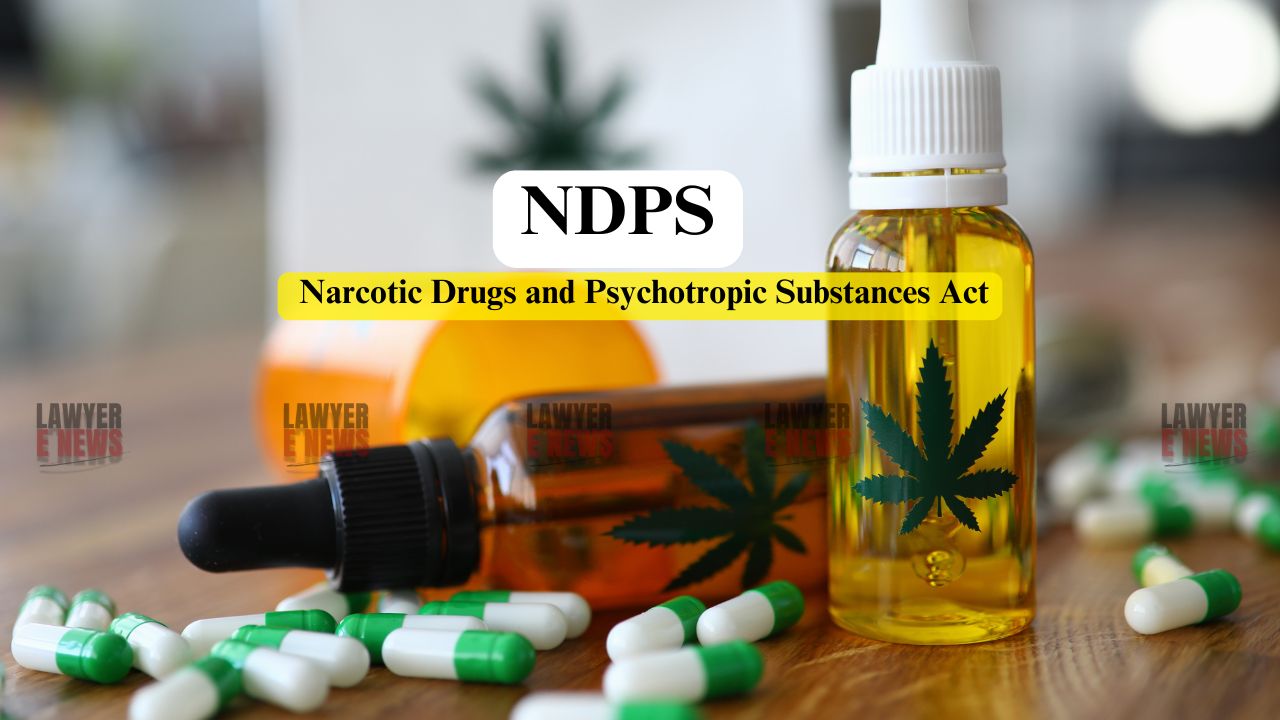-
by Admin
15 February 2026 5:35 AM



Supreme Court of India overturned the conviction of a taxi driver, Sri Shankar Dongarisaheb Bhosale, under the Narcotic Drugs and Psychotropic Substances Act, 1985 (NDPS Act). The Court set aside the judgments of both the High Court and Trial Court, which had sentenced the appellant to 10 years of rigorous imprisonment and imposed a fine of ₹1 lakh for allegedly transporting 20 kilograms of ganja in his taxi. The Supreme Court ruled that there was no evidence directly linking the appellant to the contraband and that his mere presence as the driver of the taxi was insufficient to sustain the conviction.
"No Evidence to Link Driver to Contraband," Says Supreme Court
The appellant, a taxi driver, was intercepted by the police on June 3, 2010, while driving a Tata India car in Belgaum. Upon being stopped, two passengers seated at the back fled the scene. The police searched the vehicle and recovered 20 kilograms of ganja stored in two visible bags. The driver did not attempt to flee, and no incriminating material was found on his person.
The prosecution argued that the appellant's inability to provide the details of the passengers established his complicity. However, the Supreme Court observed, "Ordinarily, it is not expected of a taxi driver to keep details of passengers. This fact alone cannot establish culpability."
The Court emphasized that the contraband was not concealed but rather openly placed in the car. It added, "The prosecution failed to trace the passengers or provide any evidence linking the appellant to the contraband. Conviction under the NDPS Act cannot be sustained based on mere suspicion or presence."
"Prosecution Failed to Follow Proper Procedures Under the NDPS Act"
The Court also pointed to procedural lapses in the case, particularly the failure to conduct a proper personal search of the appellant, as required under the NDPS Act. The Court reiterated the importance of strict compliance with procedural safeguards in NDPS cases, stating, "Non-compliance with prescribed procedures prejudices the accused and undermines the integrity of the investigation."
The Supreme Court held that the mere presence of contraband in the appellant's taxi did not automatically establish his culpability. Justice Pankaj Mithal, writing for the bench, noted, "The appellant’s conduct, including his lack of an attempt to flee, suggests no guilty intent. The prosecution must prove connivance or knowledge beyond a reasonable doubt."
The judgment also highlighted that the appellant had consistently claimed ignorance of the contraband, attributing its presence to the passengers who fled. The Court found merit in this defense, observing that the prosecution made no effort to locate the absconding passengers who could have shed light on the true facts.
Supreme Court: "Strong Suspicion Cannot Replace Proof"
Reinforcing the principle that guilt must be proven beyond a reasonable doubt, the Court stated, "While strong suspicion may arise from the circumstances, it cannot substitute for the standard of proof required under criminal law. The evidence in this case does not meet this threshold."
The Supreme Court concluded that the evidence was insufficient to sustain the appellant's conviction under the NDPS Act. The Court set aside the judgments of the High Court and Trial Court, acquitting the appellant of all charges. "The bail bonds and sureties stand discharged," the Court declared.
This landmark judgment underscores the importance of procedural rigor and evidentiary standards in NDPS cases. It also reaffirms that a driver’s mere presence in a vehicle carrying contraband is not sufficient to establish criminal liability in the absence of additional incriminating evidence.
Date of Decision: January 9, 2025
